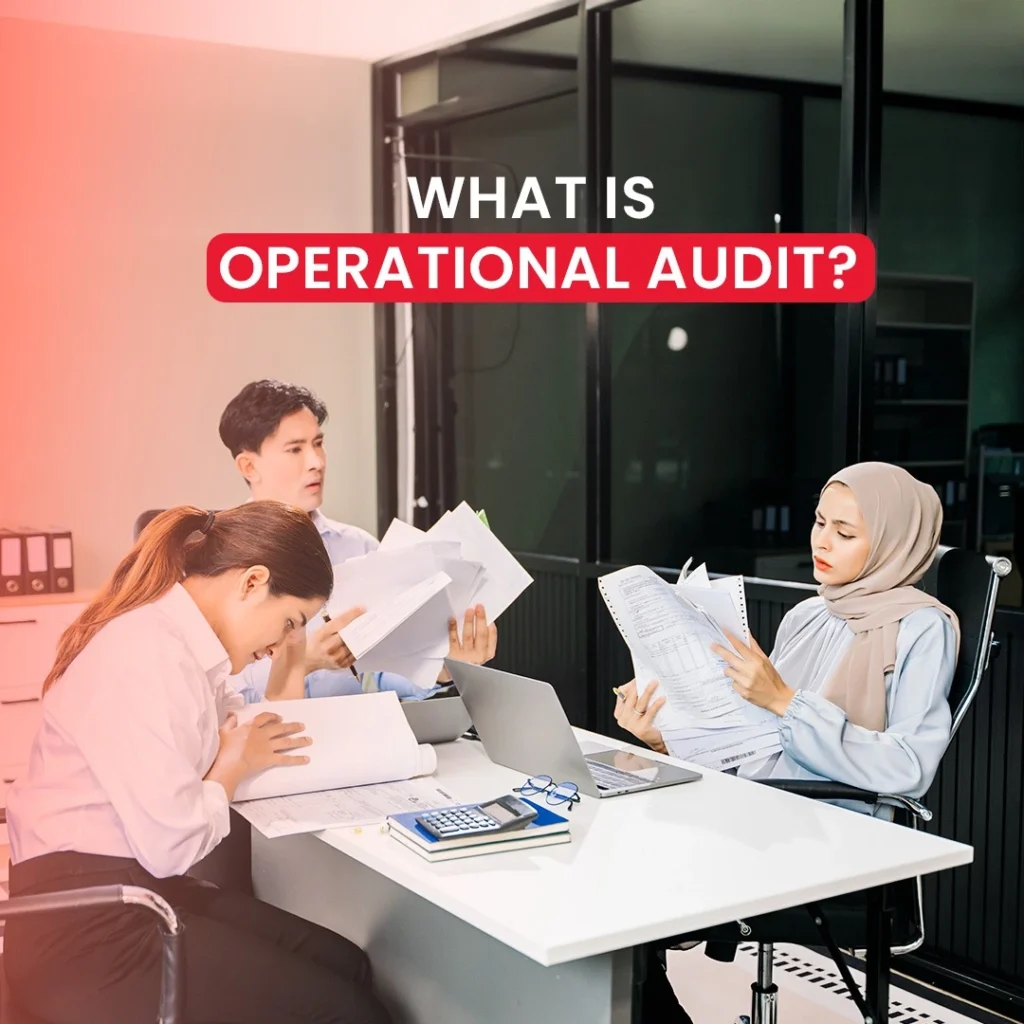What is a Dubai operational audit? This is a thorough evaluation of the company’s operation, with a focus on efficiency, effectiveness and compliance. Operational audits can help companies identify areas in which they can reduce costs, improve performance and comply with local standards.
Table of Contents
ToggleOperational Audit Purpose
Why Conduct an Operational Audit?
An operational audit’s primary goal is to evaluate the efficiency and effectiveness in an organization’s operation. The audit aims to identify gaps and weaknesses in workflows, controls, processes, etc., and provide a roadmap for improvements. Operational audits ensure compliance with standards and regulations in the industry, particularly in highly regulated environments such as Dubai and UAE.
Benefits of Operational Audits
- Cost reduction – Helps companies to find ways to reduce costs without sacrificing the quality.
- Improved Efficiency– Identifies bottlenecks in processes and inefficiencies.
- Better Risk Management– Aligns operations with best practices for mitigating risks.
- Improved Compliance– Ensures compliance with local laws such as those of Dubai, UAE.
Operational Audit Checklist
Key Areas to Review in an Operational Audit
A checklist for operational audits helps to ensure that all important aspects of a business are considered. The key areas that are typically assessed include:
- Processes & Procedures: Review operational processes to ensure efficiency and effectiveness.
- Resource management: evaluation of human and materials resources
- Risk management: Identifying risks that could affect operations.
- Compliance : Verify that operations comply with legal and regulatory standards. This is especially important in the UAE.
- Metrics Analysis of Key Performance Indicators (KPIs) to assess organization performance.
Checklist Example
| Area of Audit | Key Evaluation Points |
|---|---|
| Processes and Procedures | Are processes streamlined? Are there unnecessary steps? |
| Resource Management | Is staff utilized effectively? Are materials being wasted? |
| Risk Management | Are risks identified and mitigated? |
| Compliance | Is the business in line with Dubai’s regulations? |
| Performance Metrics | Are KPIs being met effectively? |
Who Does Operational Audits?
Who Conducts Operational Audits?
Internal or external auditors with experience in business processes are the most likely to perform operational audits. Mubarak Al Ketbi Chartered Accountants is one of the auditing firms that can assist businesses with their operational audits. These professionals are often experts in a variety of industries and have the ability to evaluate business operations critically.
Role of an Auditor in Operational Audits
Auditors are focused on identifying potential risks, inefficiencies and compliance issues within the company. The auditors use benchmarks from the industry and their own experience to evaluate operations and make suggestions for improvements. The auditors also make recommendations based on the findings of the audit. This can help the company to take better decisions.
What Can Help Mubarak Al Ketbi Chartered Accountants with Operational Audit in UAE?
We at Mubarak Al Ketbi Chartered Accountants specialize in detailed operational audits that are tailored to meet your business requirements in Dubai and UAE. Our extensive experience in auditing various industries allows us to identify inefficiencies, risk, and areas of improvement. Working with us will give you insights on how to improve your performance and streamline processes.
As the old saying goes in business, “don’t place all your eggs into one basket.” Our operational audits spread out your risks and ensure that you are covering all bases in terms of efficiency and compliance. Contact us today to learn how we can help your business make smarter and more effective decisions.
Frequently Asked Questions (FAQs)
1. What is the main goal of an operational audit?
The main goal of an operational audit is to evaluate a company’s operations and identify areas for improvement in efficiency, cost management, and compliance.
2. How often should an operational audit be conducted?
It’s typically recommended to conduct operational audits at least once a year, although it can vary depending on the size and nature of the business.
3. What are the benefits of an operational audit?
Operational audits help businesses reduce costs, increase efficiency, and ensure compliance with laws and regulations, providing a strategic advantage.
4. Can a business conduct its own operational audit?
Yes, businesses can conduct their own audits using internal resources. However, hiring external professionals ensures an unbiased and thorough evaluation of operations.
Other Services:
- Why is Internal Audit Required in UAE - MAKCA auditing
- IT Audit Assessment Services UAE - IT Audit Services…
- What is internal audit - Best Internal Auditors UAE
- Stock Audit Services Dubai, UAE | Inventory Verification UAE
- RERA Approved Auditors - RERA Audit Services Dubai, UAE
- External Auditing Services UAE - Mubarak Al Ketbi



